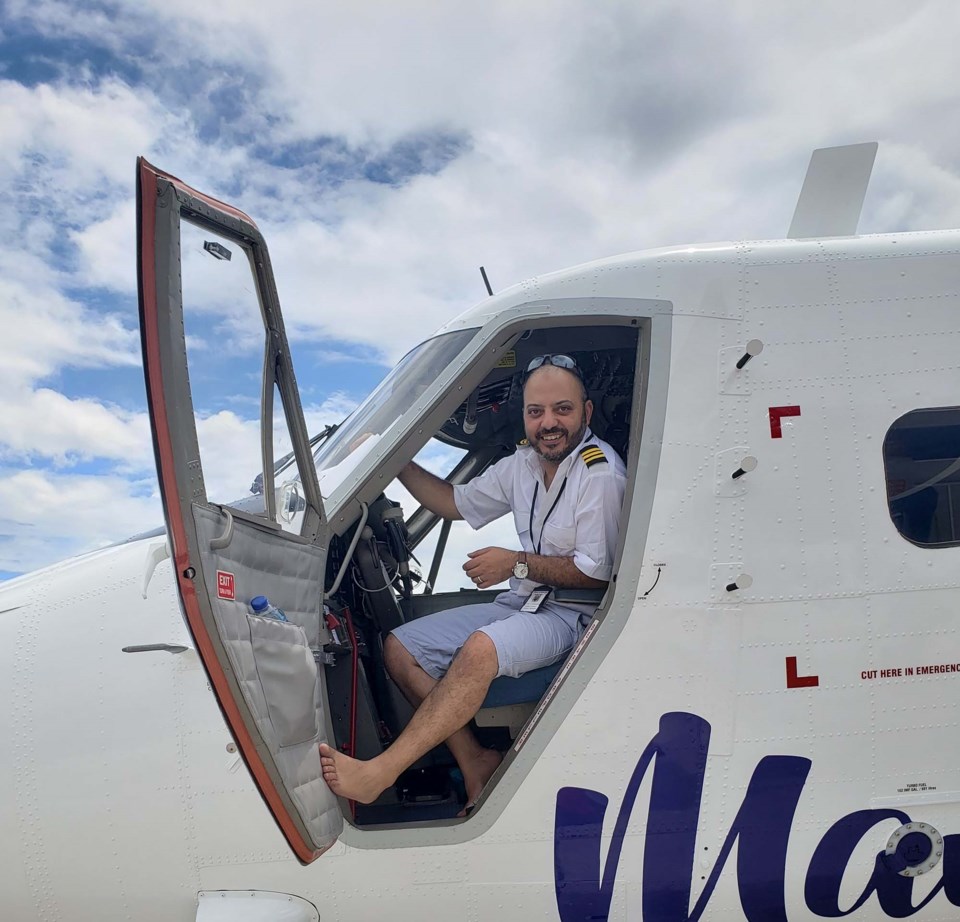Have you ever thought there was an easier way to get around the Wizz Wheel in order to speed up a plane’s turnaround time?
Houssam Hammoudi has. As a pilot flying 20-seat Twin Otters in and out of the Maldives, he knows the calculations that go into keeping that plane balanced within its centre of gravity during every phase of flight. It can’t be heavy in either the back or the front or it’ll pitch wrong.
“Weight is very important,” he began, which is why the Wizz Wheel is there in the first place. It’s a computer that does a series of calculations to help keep that balance. The big problem is that there are so many calculations that it can do that result in shuffling passengers into different seats to keep things on an even keel.
That takes time, and might not work, which would require a recalculation.
Enter Hammoudi’s prototype for a Weight and Balance app to make the process faster.
“This is what my app does, and it does it super quick. My stuff tells you exactly. You can just do it right away,” he explained. “Normally, something that takes five minutes, I do it in under 30 seconds.”
Time is money, he continued, so saving a few minutes on one flight quickly multiplies up to more time and money savings for an airline with many planes coming and going. He figured the savings would easily amount to one extra flight revenue — $7,000 per day.
“That's a lot of money. It starts to make sense,” he said, noting the numerous safety benefits that his app offers as well.
Airplanes are dispatched correctly every time, plus it also tells you where you should fly, how long to fly, and what your fuel consumption will be. For those details, you would require a different app that uses GPS, which works very well in major centres. Working in the Maldives, however, is remote. A pilot would have to calculate headings and distances independent of GPS.
“I assure these people that when they use my app, it will calculate the weight, and it will calculate the consumption, where it should go, to what heading it should fly, and also how long it will take, independently, all included in the app.”
So much for the Wizz Wheel. But what about ACARS, which monitors current weather and makes two-hour forecasts for pilots of larger aircraft (among other functions)? ACARS costs around $2 million, before even its operating costs are factored in. Surely, there must be something better for a pilot of a Twin Otter and other smaller craft.
Hammoudi devised what he calls the WX Apparatus to solve that expensive problem.
“This combination of software and hardware allows the small operators to have the similar capabilities as big operators without having to do that big investment,” he suggested, noting there are other similar products that are currently available though still at a hefty price tag.
“Nobody cares about the small guy,” he said. “That’s my niche.”
Hammoudi has come a long way from when he started his aviation career with a company that was based in Villeneuve. In fact, he's been to the Maldives and back on many occasions. Now, he's got some ideas in the works to help make flights smoother and more cost efficient.
Hammoudi’s two inventions are now at the prototype stage. They could already easily be considered the culmination of his two loves: aviation and information technology.
Only 39, he’s a seasoned professional in DevSecOps — basically cybersecurity — and IT and software development.
He sees these products as the merging of his knowledge as a pilot with his savvy for finding computer solutions to real-life problems.
"Basically if you ask me, ‘What's my passion?’ it’s aviation ... but also IT. I like to create, and aviation gives me the ability to create. In IT a boss would tell me, ‘We want to do this,’ and I have to do what the company wants, although I'm not super passionate about it. But these projects … I'm very passionate about because they allow me to create. I’m creative using technology."




